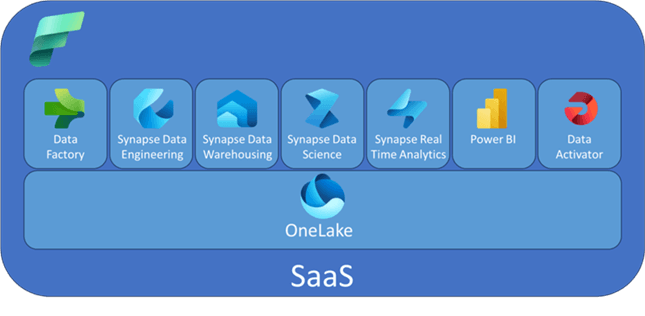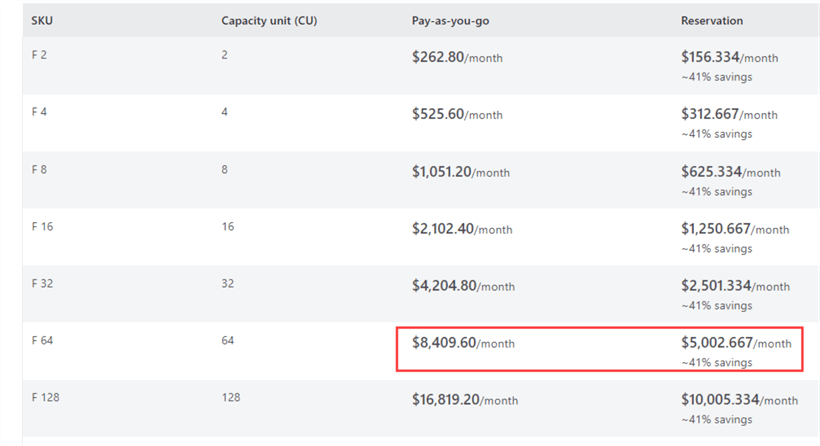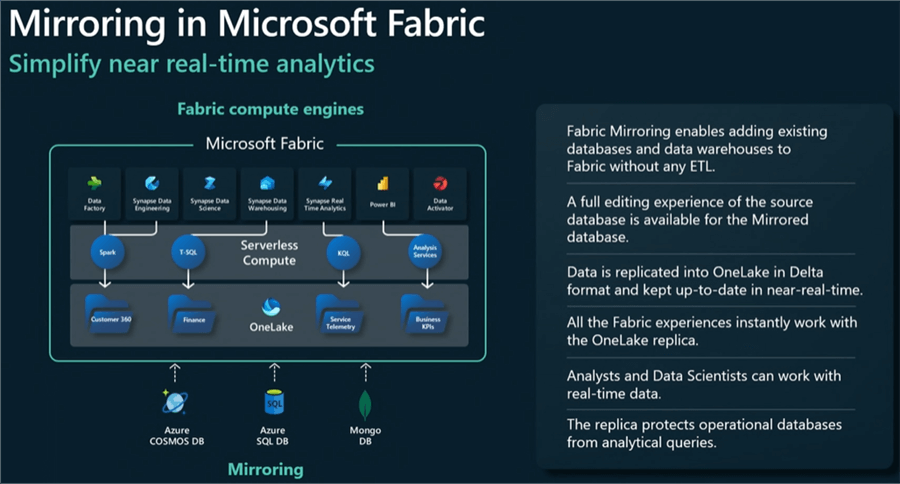By: Koen Verbeeck | Updated: 2023-12-06 | Comments | Related: > Microsoft Fabric
Problem
Microsoft Ignite is a global conference where Microsoft showcases the latest developments in Azure, data, artificial intelligence (AI), and other technologies. The 2023 conference was held 15-16 November, with pre-conference labs on the 14th. Microsoft typically announces new features, products, or important updates at Ignite. In this tip, we'll focus on the announcement for Microsoft Fabric.
Solution
Microsoft Fabric is a powerful new all-in-one analytics platform for the enterprise. It was announced at Microsoft Build 2023 in May and was released in public preview. You can learn more about the various workloads that can be developed in Fabric in this overview. Most sessions from Ignite can be viewed on-demand, but you may need to register first.
General Availability for Microsoft Fabric
In the Ignite 2023 opening keynote given by Satya Nadella, the CEO of Microsoft, the general availability of Microsoft Fabric was announced (around the 37:52 mark if you want to watch the keynote). This means Fabric is no longer in public preview, and you can use it in production environments. For more information about the GA announcement, please see the following: Prepare your data for AI innovation with Microsoft Fabric—now generally available, and Fabric workloads are now generally available!

However, it doesn't mean Fabric is "finished." Since it's a cloud service, it will continue to evolve as new features are added or updated and bugs resolved. As it now stands, Fabric has a monthly cadence of updates, just like Power BI. You can find more information about these monthly updates on the official Fabric blog.
Customers who want to try out Fabric first can still utilize the 60-day trial option.
Reserved Capacity Pricing
When Fabric was announced in May 2023, you could sample it using the trial option. In June, pay-as-you-go prices were introduced using the Fabric capacities. These capacities (called F SKUs) are provisioned in Azure, and they have the flexibility to be paused and resumed. When a capacity is paused, a fee is not assessed (except for storage in OneLake). When you have Power BI Premium, you also have the Fabric capabilities. These are the so-called P SKUs, and in contrast with the F SKUs, they have reserved pricing. This means you pay a fixed amount each month for a reserved set of capacity. A F64 SKU is equivalent to a P1 SKU (but not in price).
At Ignite, reserved pricing for F SKUs was introduced. This means you can purchase a year-long reserved capacity at a discount. For example, the monthly price for an F64 capacity is around $8400 (assuming it runs the whole month). The same number of capacity units in reserved pricing is approximately $5000, a 41% discount. The following screenshot is taken from the Azure pricing website:

However, purchasing an F64 capacity in reserved pricing doesn't mean you purchased a "physical" capacity; instead, you bought "64 logical capacity units". Without an Azure F capacity, you must still pay for those 64 capacities. However, there are options: one F64 capacity or two F32 capacities. You must look at it as if you have bought a bucket with 64 capacity units, and it's up to you to choose how to spend them. This gives the F capacities much more flexibility than the P-SKUs.
For example, suppose we purchased an F8 capacity with reserved. Halfway through the month, we realized we needed more capacity, so we scaled our Azure F capacity from F8 to F16. We don't need to pay extra for the first half of the month since we have already purchased eight capacity units. However, for the second half, we need to pay for eight extra capacities (or 16-8 = 8).
With Power BI Premium, you already have the Fabric capabilities. It is worth checking out if you need extra capacity, not to run the additional compute power for the Fabric features, or if you can stay at your current P-SKU. Keep in mind other factors that influence pricing, such as discounts through M365 (for the P-SKU) or Azure (for the F-SKU).
Mirroring in Microsoft Fabric
An interesting new feature is mirroring. It allows you to replicate data from other databases, such as Azure SQL DB, Azure Cosmos DB, Snowflake, and Mongo DB, to delta tables in Fabric. It provides an easy-to-use interface to get data from all those systems effortlessly without writing any code or ETL into Fabric. Mirroring will use the built-in CDC capabilities of those source databases to enable low latency and cheap replication. The following image was taken from the Ignite session, Unify your data across domains, clouds, and engines in OneLake (content about mirroring starts at the 25-minute mark):

At the time of writing, mirroring is in private preview. On the roadmap are other possible sources, such as SQL Server, Oracle, MySQL, etc.
This feature resembles Azure Synapse Link. Microsoft says mirroring will be cheaper, faster, and easier to use. Another benefit of mirroring is that the replicated tables are stored as delta tables in Fabric (like anything else). You can immediately use all the Fabric compute services (warehouse, lakehouse, and Power BI Direct Lake) to query that data. You can learn more about this feature in the official announcement blog post.
Copilot
The Copilot experience is now in public preview. For example, you can create Power BI reports using a prompt, jumpstarting the creative process, previously mentioned in the tip named AI Features in Power BI for Report Development. Every experience in Fabric will be Copilot-enabled. The Copilot feature will roll out in stages, where customers with P1/F64 or higher should have the Copilot feature by the end of March 2024. You can read more about this in the blog post: Empower Power BI users with Microsoft Fabric and Copilot.
Other Announcements
Many "smaller" announcements were also made at Ignite or in blog posts published during Ignite. Here are some noteworthy statements:
- Power BI datasets are renamed to semantic models (similar to the naming in SQL Server Analysis Services: the BI Semantic Model or BISM). You can read more about it: Datasets renamed to semantic models.
- You will be able to write DAX queries in Power BI Desktop using the new DAX query view.
- In the Power BI Service, a new feature called Explore is in public preview. Explore allows you to quickly search the data of your semantic model in an Excel PivotTable-like fashion.
- OneLake integration for Power BI import models. By enabling this feature, the tables in your Power BI semantic model will be written out to Delta tables in OneLake. Check out the documentation for more information.
- Data Compaction is now available for warehouses in Fabric.
- The T-SQL surface area of warehouses is expanded with sp_rename, TRIM, and GENERATE_SERIES.
- There are many more new features as part of the Fabric and Power BI monthly update.
Next Steps
- Most Ignite sessions are available for viewing on-demand at the Ignite website.
- Interested in other Ignite announcements? Check out the Ignite book of news.
- Learn more about reserved pricing for the Azure F SKUs: Save costs with Microsoft Fabric Capacity reservations.
- You can find more Microsoft Fabric tips in this overview.
About the author
 Koen Verbeeck is a seasoned business intelligence consultant at AE. He has over a decade of experience with the Microsoft Data Platform in numerous industries. He holds several certifications and is a prolific writer contributing content about SSIS, ADF, SSAS, SSRS, MDS, Power BI, Snowflake and Azure services. He has spoken at PASS, SQLBits, dataMinds Connect and delivers webinars on MSSQLTips.com. Koen has been awarded the Microsoft MVP data platform award for many years.
Koen Verbeeck is a seasoned business intelligence consultant at AE. He has over a decade of experience with the Microsoft Data Platform in numerous industries. He holds several certifications and is a prolific writer contributing content about SSIS, ADF, SSAS, SSRS, MDS, Power BI, Snowflake and Azure services. He has spoken at PASS, SQLBits, dataMinds Connect and delivers webinars on MSSQLTips.com. Koen has been awarded the Microsoft MVP data platform award for many years.This author pledges the content of this article is based on professional experience and not AI generated.
View all my tips
Article Last Updated: 2023-12-06






